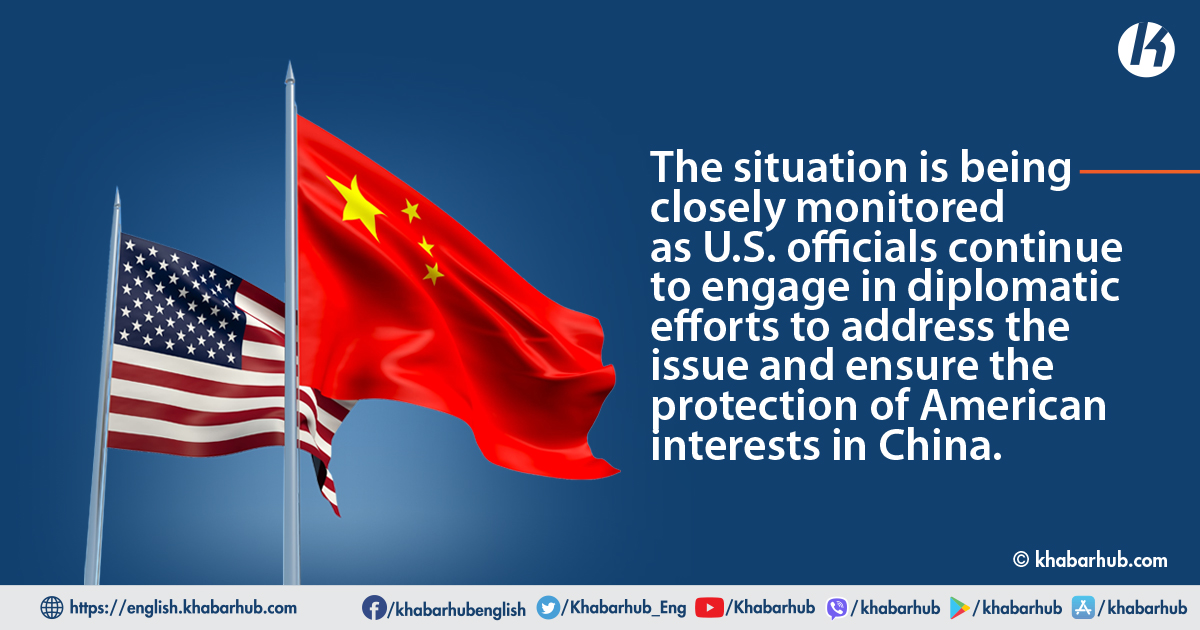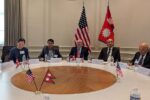The U.S. State Department’s concerns have been ignited by the Chinese communist regime’s latest initiative, which encourages citizens to spy on one another.
The newly announced push to bolster counterespionage measures in China has raised apprehensions among U.S. officials about the potential implications for the safety of American citizens and businesses operating in the country.
This essay delves into the specifics of the State Department’s anxieties, the implications of China’s counterespionage law, and the subsequent fallout on foreign companies and individuals.
According to a State Department spokesperson, Matthew Miller, the U.S. government is closely monitoring the situation in Beijing since the recent announcement of the counterespionage initiative.
Miller highlighted the deep-rooted concerns over the initiative, which involves encouraging citizens to participate in espionage activities. The State Department is alarmed by the broadening scope of what China considers espionage under the newly implemented counterespionage law.
As the law expands the definition of espionage activities, there is growing apprehension about the safety and wellbeing of U.S. citizens and businesspeople operating in China.
The definition of espionage has been expanded to include organizations or individuals colluding to steal, pry into, or access state secrets, intelligence, and other sensitive information.
The State Department’s concerns extend beyond the counterespionage initiative. Last month, an updated advisory was issued, warning U.S. citizens to reconsider travel to mainland China.
The advisory was prompted by the arbitrary enforcement of local laws in China, which includes the risk of wrongful detentions and arrests.
The Level 3 Travel Advisory cautions U.S. citizens about the dangers they may face while in China, particularly with regard to the risk of arbitrary arrest and detention.
This advisory further compounds the State Department’s concerns about the safety of Americans in China. Secretary of State Antony Blinken addressed these concerns during his meetings with Chinese officials in Beijing on June 18.
His engagement marked a significant moment as it was the highest-level U.S. official visit to China since President Joe Biden assumed office.
During these meetings, Blinken stressed the importance of protecting the rights and safety of U.S. citizens and businesses in China, urging Chinese authorities to respect international norms.
China’s Ministry of State Security took to WeChat, a popular social media platform, to announce its “Countering espionage requires the mobilization of all members of society” campaign.
The message called for citizens to actively participate in educating others about enemies defined by national security and the rule of law.
The campaign seeks to strengthen awareness of counterespionage across society, forming a strong joint force to maintain national security.
The initiative encourages individuals to engage in counterespionage activities and promises commendations and rewards for their efforts.
China’s counterespionage law, which came into effect on July 1, has raised significant concerns among U.S. government officials.
The law prohibits the transfer of information related to national security and significantly broadens the definition of national security and espionage.
The situation is being closely monitored as U.S. officials continue to engage in diplomatic efforts to address the issue and ensure the protection of American interests in China.
The U.S. government is particularly worried about the potential repercussions for foreign companies in China, as they fear facing punishment for conducting regular business activities.
Under the revised law, individuals could be convicted of engaging in activities carried out, instigated, or funded by foreign entities or involving collusion with domestic institutions or individuals.
The definition of espionage has been expanded to include organizations or individuals colluding to steal, pry into, or access state secrets, intelligence, and other sensitive information.
Investigators now have the power to access data and materials from relevant individuals and organizations, who are required to cooperate with probes.
The National Counterintelligence and Security Center (NCSC) in the U.S. has warned that China’s updated laws grant the regime expanded legal grounds for accessing and controlling data held by U.S. firms in China.
This could potentially compel locally employed PRC nationals of U.S. firms to assist in Chinese intelligence efforts, raising concerns about the security and confidentiality of sensitive information.
The escalating tensions between the U.S. and China over the latter’s counterespionage initiative have raised significant concerns about the safety and well-being of U.S. citizens and businesses operating in China.
The broadened definition of espionage under China’s new counterespionage law and the government’s call for citizens to engage in counterespionage activities have deepened the State Department’s apprehensions.
The situation is being closely monitored as U.S. officials continue to engage in diplomatic efforts to address the issue and ensure the protection of American interests in China.









Comment